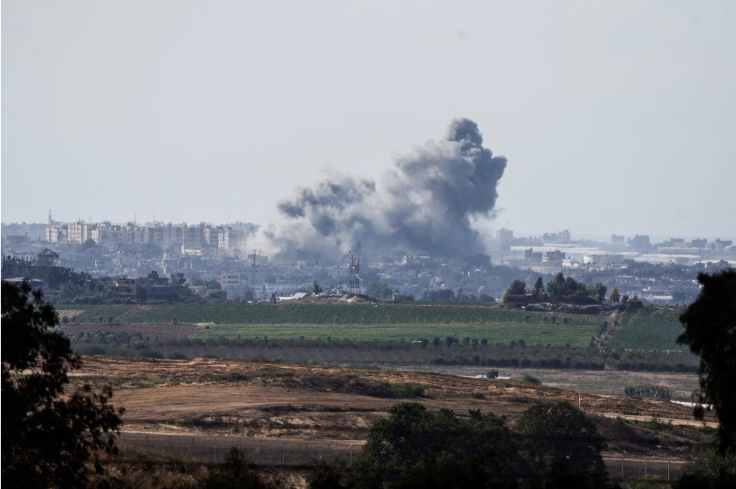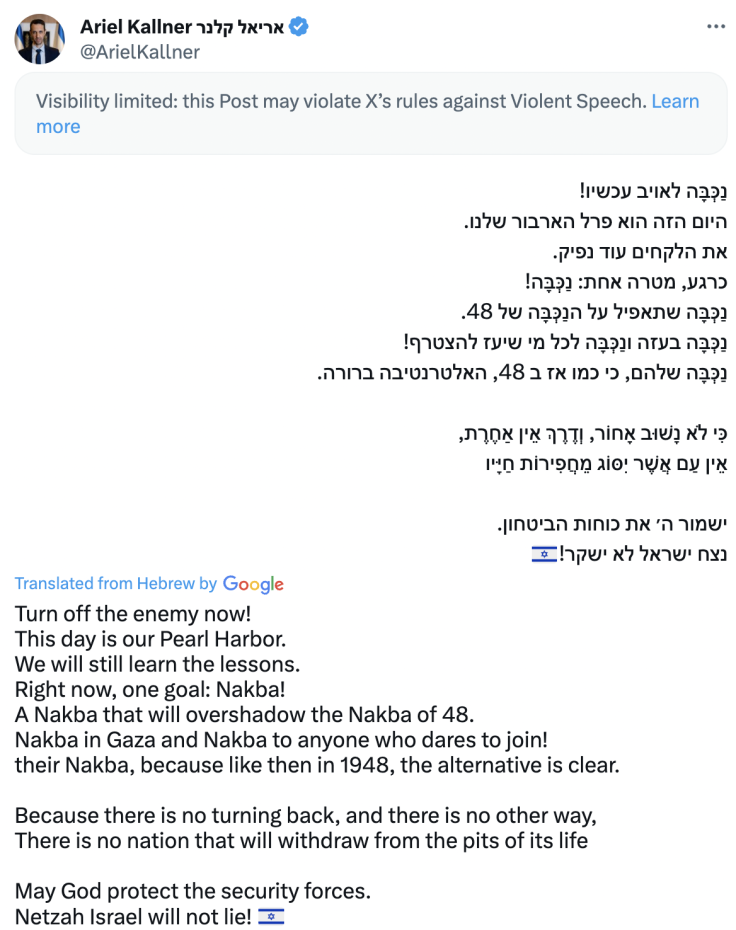UN Special Rapporteur Says 'Second Nakba' May be Underway in Gaza
UN says "mass ethnic cleansing" of Palestinians is underway. Concurrently, condemnation continues from various countries, including South Africa and Ireland.

The United Nations is not mincing its words. As Israeli communities targeted by Hamas militants mourn their dead, the IDF onslaught on Gazans is intensifying.
The situation in Gaza may be a "repeat of the 1948 Nakba, and the 1967 Naksa, yet on a larger scale", said Francesca Albanese, UN Special Rapporteur on the situation of human rights in the Palestinian territories occupied since 1967.
The Nakba, meaning "catastrophe" in Arabic, is the term used to describe the events of 1947-49 when over 750,000 Palestinians were expelled from their homes and lands during the hostilities that led to the establishment of the State of Israel.
The Naksa, by contrast, refers to the aftermath of the Arab-Israeli war of 1967, which led to Israel's occupation of the West Bank and the Gaza Strip. "Naksa" means "setback" or "defeat".
Albanese, the Italian lawyer and academic holding the Special Rapporteur position since May 2022, noted that Israeli public officials have openly advocated for another Nakba.
Although she did not directly name anyone, examples of the phenomenon can be found on social media. Ariel Kallner, an Israeli Knesset member from the ruling Likud party, tweeted on 7 October 2023, saying:
Right now, one goal: Nakba!
A Nakba that will overshadow the Nakba of 48.

"Israel has already carried out mass ethnic cleansing of Palestinians under the fog of war," Albanese continued. "Again, in the name of self-defence, Israel is seeking to justify what would amount to ethnic cleansing."
She concluded her remarks by saying: "Any continued military operations by Israel have gone well beyond the limits of international law. The international community must stop these egregious violations of international law now before tragic history is repeated. Time is of the essence. Palestinians and Israelis both deserve to live in peace, equality of rights, dignity and freedom."
Meanwhile, two days later, Tzipi Hotovely, the Israeli ambassador to the UK, stated on Sky News that "there is no humanitarian crisis in Gaza". Her statement was contradicted by Sky News host Kay Burley, who insisted that the footage demonstrated otherwise.
Albanese's remarks come as observers draw some sobering comparisons. Marc Galasco, a former UN war crimes investigator, noted that the IDF has dropped 6,000 bombs inside Gaza in the first six days of retaliation. He compared this to the highest number of bombs dropped by NATO forces in Afghanistan in a year — a total of 7,423 bombs in 2019.
The strength of the language used by Albanese, who in her role as Rapporteur is tasked with regularly visiting the Occupied Palestinian Territories to document the human rights situation, is echoed in statements issued by various foreign ministries around the world.
Neither are these statements limited to the perhaps expected condemnation of the Muslim world. Some notable statements sympathetic to the Palestinian cause have come from South Africa and Ireland.
South Africa, Israel's biggest trading partner on the African continent, expressed "grave concern over the recent devastating escalation in the Israeli-Palestinian conflict".
Its Department of International Relations and Cooperation went on to say: "The new conflagration has arisen from the continued illegal occupation of Palestine land, continued settlement expansion, desecration of the Al Aqsa Mosque and Christian holy sites, and ongoing oppression of the Palestinian people."
The statement went on to express support for a "viable, contiguous Palestinian State, existing side-by-side in peace with Israel, within the 1967 internationally recognised borders, with East Jerusalem as its capital".
Commentators have pointed out that South Africa's own experience with apartheid — a term Palestinian activists have increasingly adopted to describe their experience under Israeli occupation — has led to its longstanding sympathy with Palestine.
In 2002, prominent anti-apartheid activist and Nobel Peace Prize laureate Bishop Desmond Tutu said in a speech in the US: "I've been very deeply distressed in my visit to the Holy Land; it reminded me so much of what happened to us black people in South Africa. I have seen the humiliation of the Palestinians at checkpoints and roadblocks, suffering like us when young white police officers prevented us from moving about."
Similarly, Ireland has been a longstanding advocate of the Palestinians. In 1980, Ireland was the first European Union member state to endorse the establishment of a Palestinian state.
As the latest flare-up intensifies, Ireland has said that Israel has a right to defend itself but has expressed serious reservations about the ongoing IDF action.
"Israel is under threat. They do have a right to defend themselves, but they don't have the right to breach international humanitarian law," said Leo Varadkar, Taoiseach (Prime Minister) of Ireland.
Varadkar continued: "To me, it amounts to collective punishment. Cutting off power, cutting off fuel supplies and water supplies, that's not the way a respectable democratic state should conduct itself."
In 2021, Ireland's Parliament voted unanimously to condemn Israel's "de facto annexation" of Palestinian land in the occupied territories — the first European Union member state to do so.
Many commentators have observed that Ireland's sympathies with the stateless Palestinians have their basis in the former's own history of British imperialism, including rebellion against the British, which ultimately saw the six Northern Irish counties placed under the permanent control of the British crown in 1920, following a civil war.
© Copyright IBTimes 2025. All rights reserved.






















